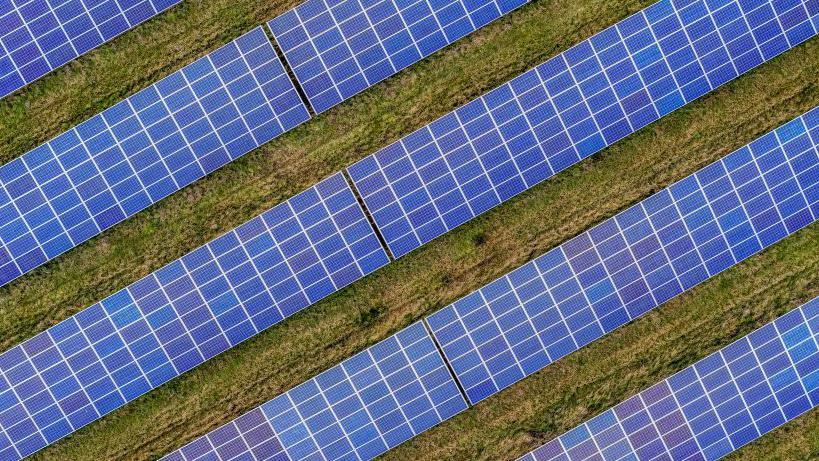Solar power: a bright idea or a blight on nature?
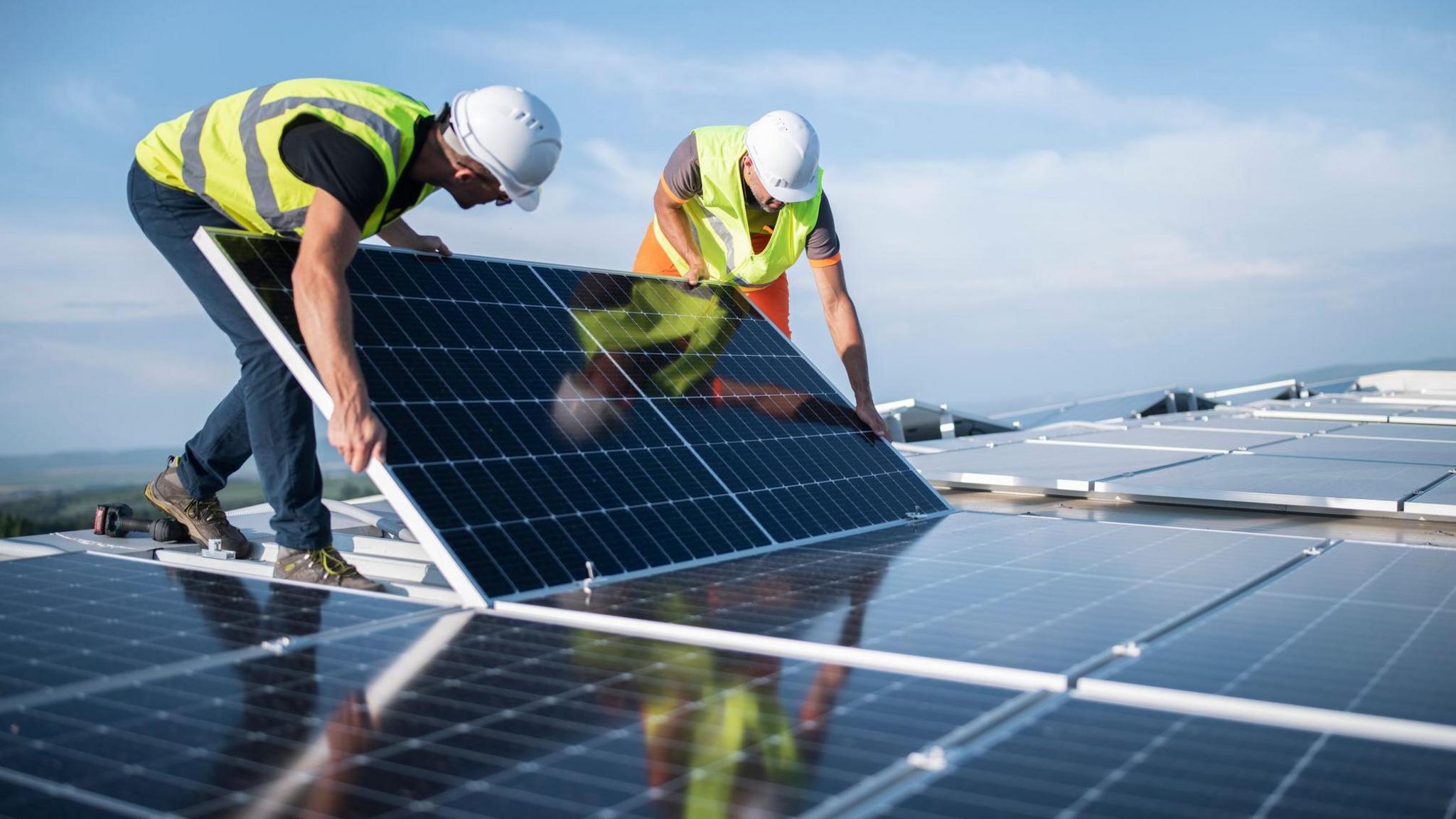
Campaigners say the government should do more to support community-owned solar farms
- Published
Community groups in the South East are calling on ministers to "move faster" to help residents own and use locally-produced solar power.
Solar panels are a key part of the government's energy strategy, but are controversial, with residents campaigning against large scale farms that they fear will affect the local landscape.
Groups like Kent Community Energy say sites owned by the local community are more likely to gain support, because they allow profits from electricity sold to be re-invested in nearby charities and schools.
The government said: "Community projects are at the heart of our 2030 clean power mission."
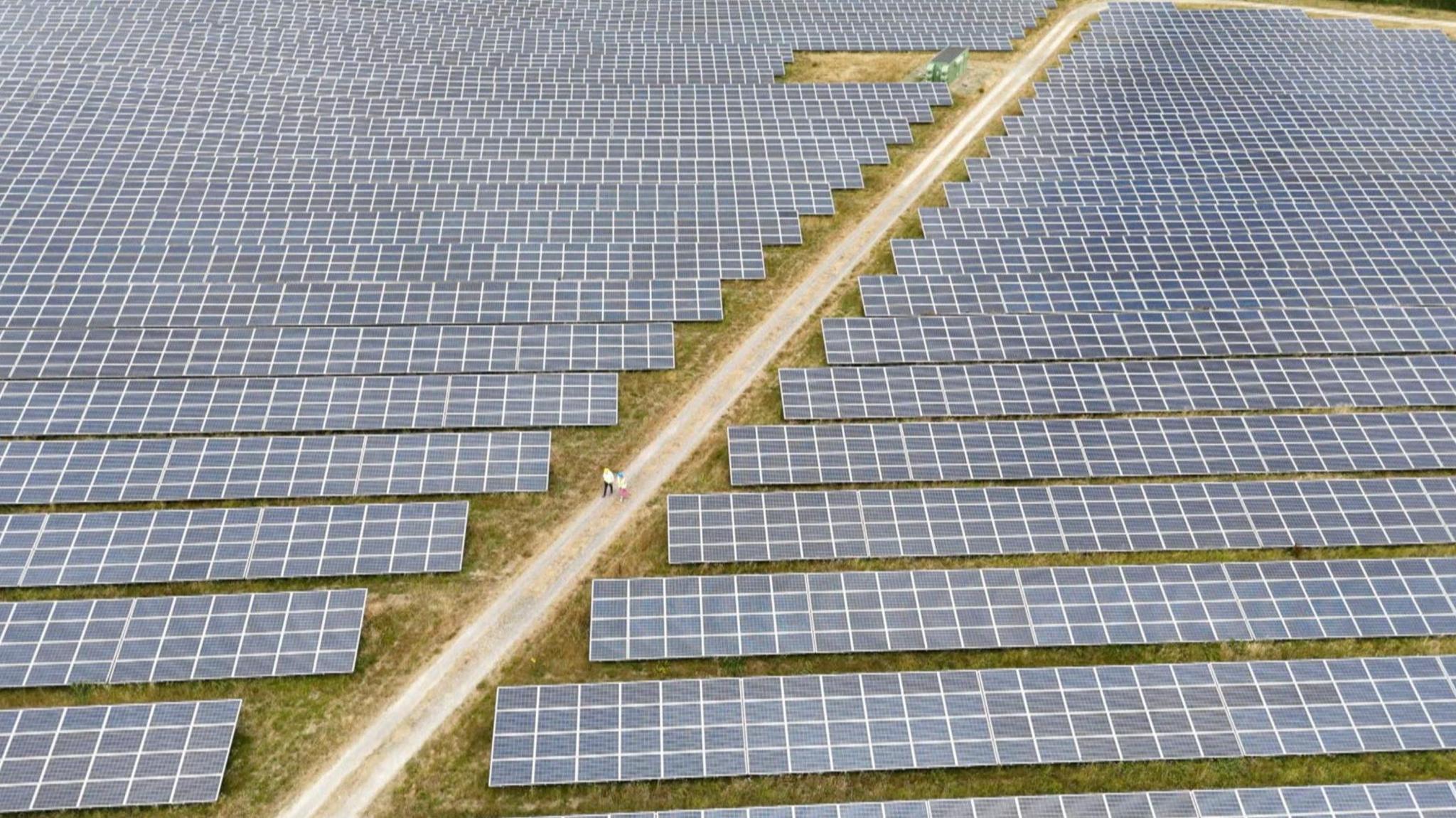
The profits made from selling energy produced at this site outside Sittingbourne are given as grants to local charities, schools and businesses
Just outside Sittingbourne in Kent, two fields are covered in gleaming solar panels.
Each produces five megawatts (MW) of electricity, and together they can produce enough energy to power around 7,000 homes.
But unlike many privately-owned solar farms, the profits made from selling the energy produced here are put back into the local community.
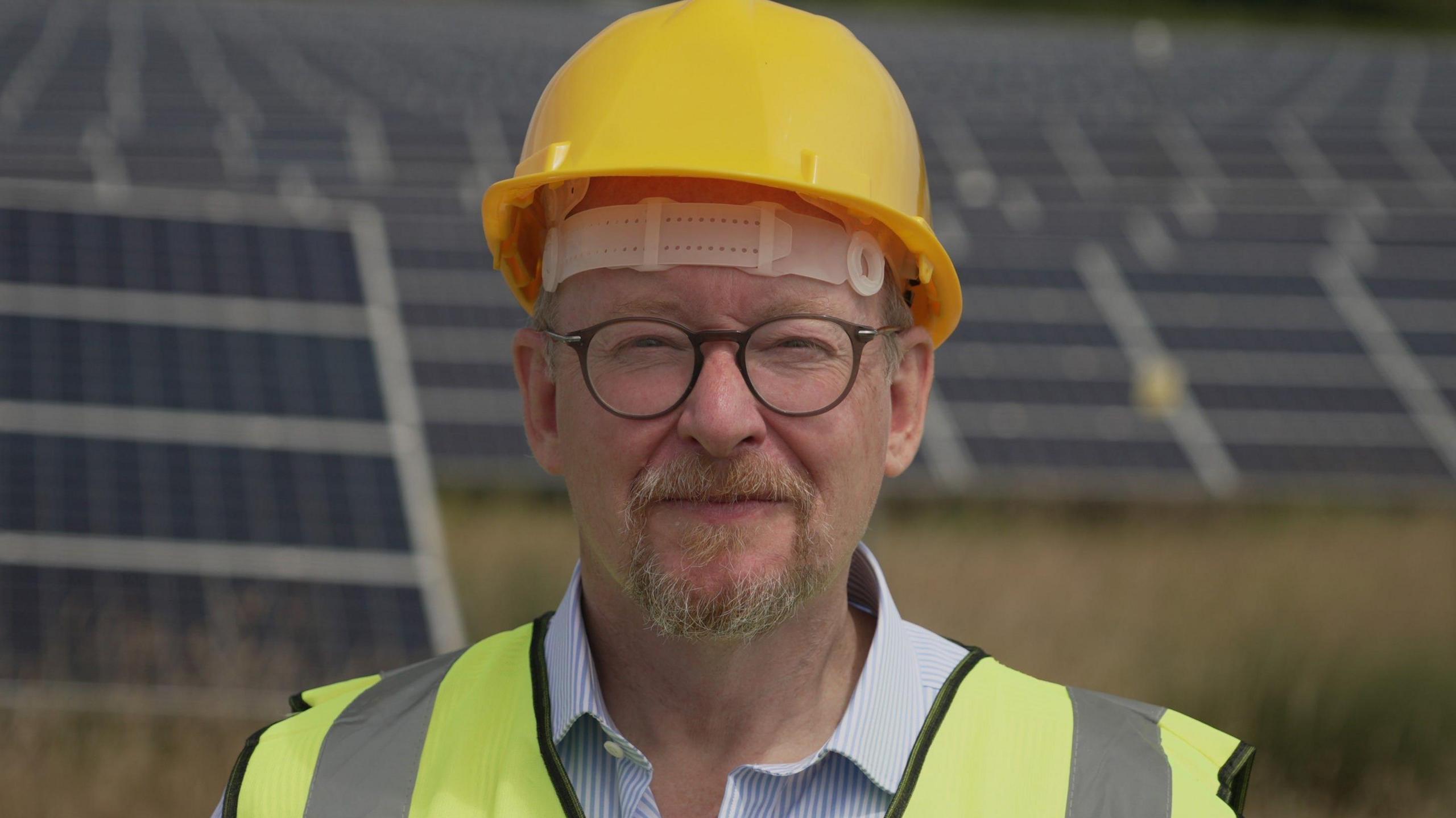
Michael Bax, the Managing Director of Kent Community Energy, believes their solar model is the future
'What's not to like?'
Michael Bax, managing director of Kent Community Energy, which owns one of the two sites, says the money they make is re-invested into the business and given to local charities.
"Kent Community Energy is owned by ordinary people in Kent and elsewhere... every penny that we make is put back into the Kent community," he said.
He believes this model of producing energy is the future.
"You only have to look at this site, it's quiet, it's friendly to nature. We're a haven to birds and biodiversity," he added.
"Yesterday we generated 37,000 kilowatt hours (kWh), that's enough to power about 3,500 houses without a single drop of carbon being produced.
"So from our point of view, what's not to like?"
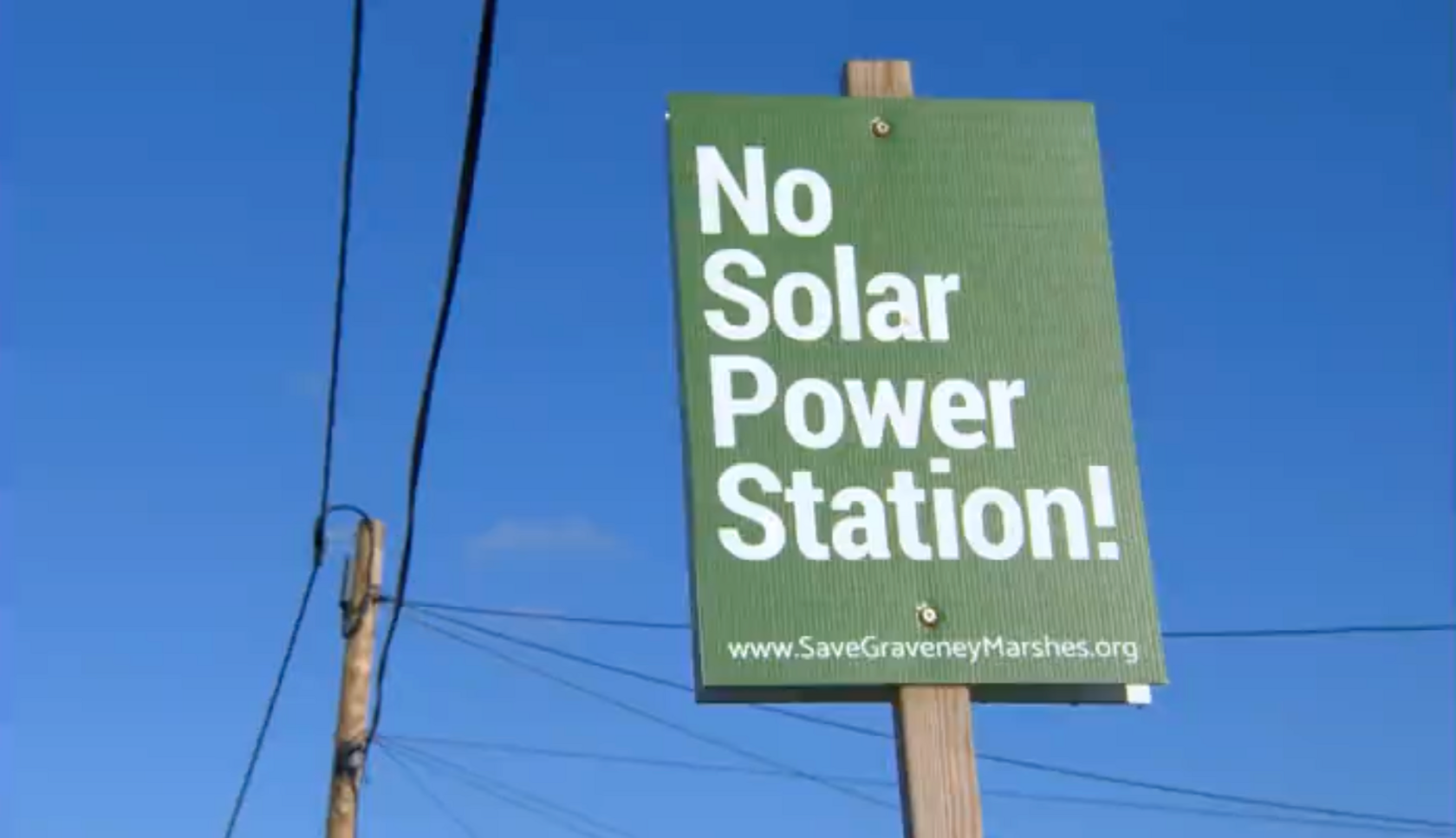
Residents have protested against the Cleve Hill Solar Park near Faversham
However, there are groups of residents across the region who are not so keen on solar.
In particular, large scale solar farms.
The Cleve Hill project, which covers more than 950 acres of farmland near Faversham, equivalent in size to four Bluewater shopping centres, has attracted multiple protests from local residents, worried about the impact on the landscape and wildlife.
New plans for an even larger site at Romney Marsh have drawn similar concerns.
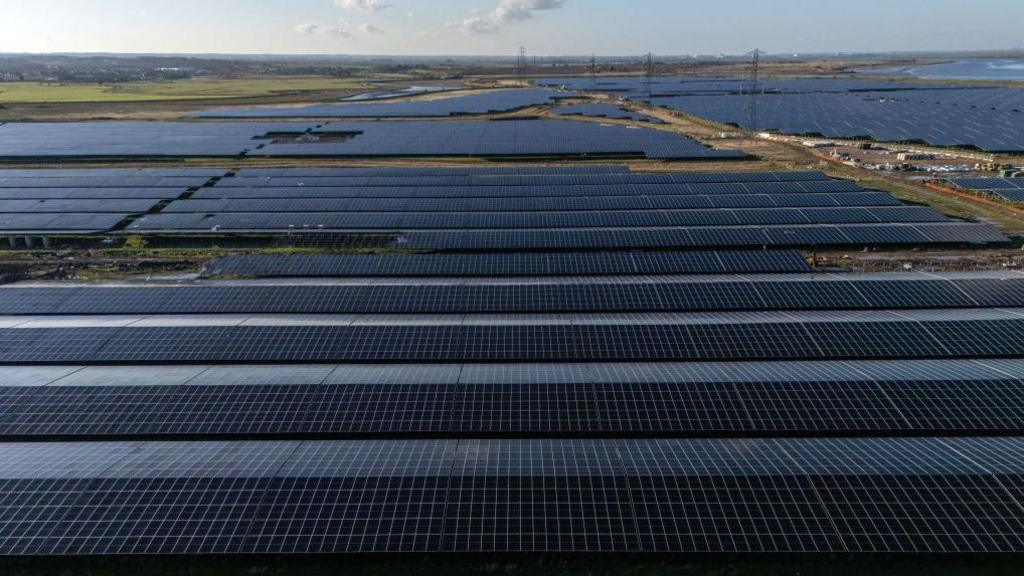
Construction taking place on Cleve Hill Solar Park, near Faversham, which has attracted protests from local residents
The local Reform Kent county councillor, David Wimble, oversees environment for the authority.
He said: "I've got nothing against solar farms, per se, but what I do have a problem with is them being on grade A agricultural land.
"I think food security is just as important, if not more important, than solar."
He added that he intended to fight projects like these.
"I'm just about to set up something called the Kent Solar Forum to get all the [protest groups] together and have one voice. We just think it's too much."
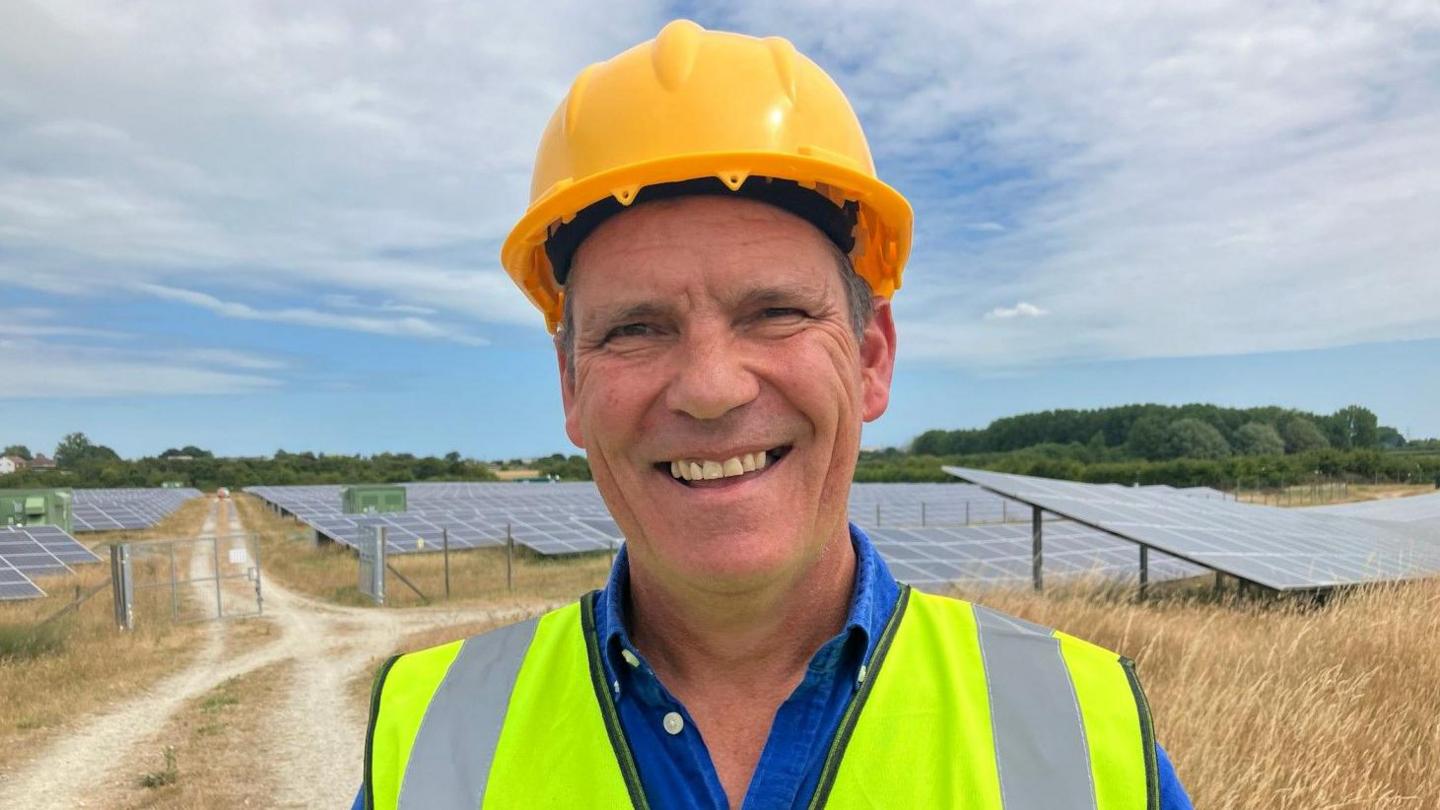
Ollie Pendered, chief executive of Community Energy Pathways, wants to make it easier for local residents to use the electricity produced at nearby solar sites
The government has made solar power a key part of its energy strategy to reach net zero carbon emissions.
Ministers have vowed to generate enough clean power to meet Britain's total annual electricity demand by 2030 - including up to 47 gigawatts of solar.
But they know they could have a fight on their hands.
When asked about local opposition to projects earlier this year, Energy Secretary Ed Miliband said: "If we don't [build solar] we are going to be exposed as a country to those fossil fuels which have caused such damage to so many people".
Those behind community-owned power believe government need to do more to unlock community schemes, which they say will help bring more residents on board.
Ollie Pendered is the chief executive of Community Energy Pathways, which supports community energy groups to get themselves established.
He said local people could "take ownership" of these projects, "harness community benefits... and mould them into what they want to see locally".
But he wants ministers to go further, by making it easier for residents to use the energy produced from local projects to power their own homes and bring down bills.
"That's something that needs to be unlocked by government. It enables people to keep the power in the local community and use that power locally, it just makes complete sense," he said.
A spokesperson for the Department for Energy Security and Net Zero said: "Community projects are at the heart of our 2030 clean power mission, and through Great British Energy, we're putting power back into the hands of the people by giving communities a stake in their energy supply and ensuring they can reap the benefits.
"There is nothing to prevent suppliers from selling their power via local electricity tariffs, and they do not have to sell it back to the grid."
However, the government has said it recognises that there is scope to better enable local energy markets, and it is exploring this further.
Follow BBC Kent on Facebook,, external on X, external and on Instagram., external Send your story ideas to southeasttoday@bbc.co.uk, external or WhatsApp us on 08081 002250.
- Published21 July
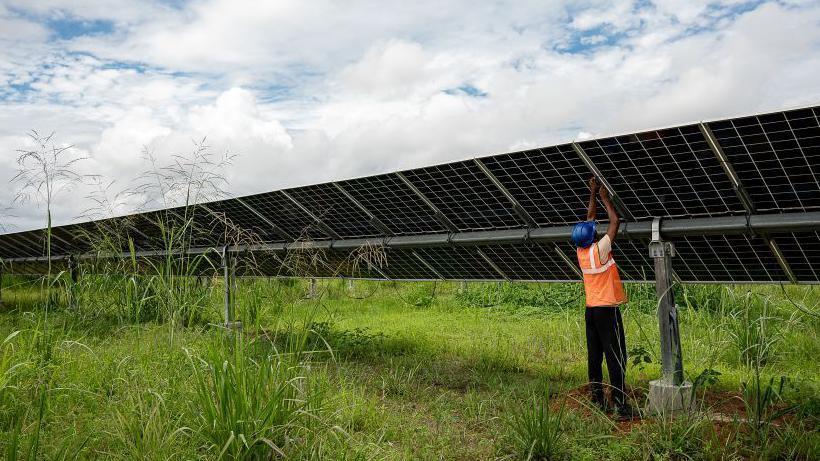
- Published11 June
